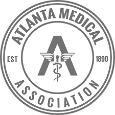How Can Surgery Improve My Nasal Breathing?
Each year, thousands of people undergo nasal surgery (over 200,000 according to the American Society of Plastic Surgeons). Some patients have primarily cosmetic concerns, others mostly functional concerns, while many have a combination of both issues they would like addressed. In all cases, the best outcome will occur when your plastic surgeon at least takes into consideration the functional aspects of your surgery.
The main cause of breathing obstruction in someone who has not had significant nasal trauma or prior nasal surgery is often either a deviated septum or enlargement of filtering structures on the inside of your nose called turbinates. Septal deviation is extremely common, but does not always require surgical intervention. In those patients who have significant deviation of the septum, however, undergoing surgery to repair or straighten it can have a meaningful impact. As with every surgery, there are risks. The only way to minimize the possible risks is to discuss very honestly with your surgeon their level of experience, and their estimation of what risks are most likely or possible to occur.
Turbinate hypertrophy, or enlargement, is a relatively common condition that can be addressed in a multitude of safe and effective ways that reduce the amount of tissue that cause the swelling in the first place, without actually removing the structures themselves. Insurance companies may often require, if you have this finding on physical examination, that you undergo a short-term trial of nasal steroid medications to see if medical treatment will improve symptoms without surgery.
In some patients, and commonly in those who have undergone some type of nasal surgery or trauma in the past, we often find that certain areas important for breathing have been narrowed in an attempt to make the appearance of the nose more appealing. Narrowing certain aspects of the cartilage or bone within the nose can often have a short-term benefit in terms of appearance, but can sometimes have long-term effects on breathing. In these cases, we must attempt to use remaining cartilage in the nose or possibly even cartilage from other sources, to rebuild support to these areas. Undergoing this type of reconstructive surgery can often be intimidating for the patient, but for those of us who perform this surgery regularly, it can be very rewarding in its outcomes.
The most challenging part of modern nasal surgery is not only understanding the intricate and complicated anatomy of the nose, but being able to achieve balance between the form and function of the ultimate result. We have learned a great deal from nasal surgery that was performed over the last several decades. In order to achieve smaller and more “perfect” noses, copious amounts of cartilage were often removed. This ultimately risked nasal breathing and led to unwanted long-term changes to the nasal tissues. Modern nasal surgery emphasizes that well-functioning noses can also be beautiful noses, but that each nose and each face is different and that certain structures must remain in order to have a long-lasting, and functional result.
As always, it is important to understand that all surgery carries risk. Discuss openly and honestly with your surgeon what types of risks may be most likely, how they would be minimized and what level of experience he or she has. Most likely, you will love the look of the final result and be able to breath well from it for years to come!




